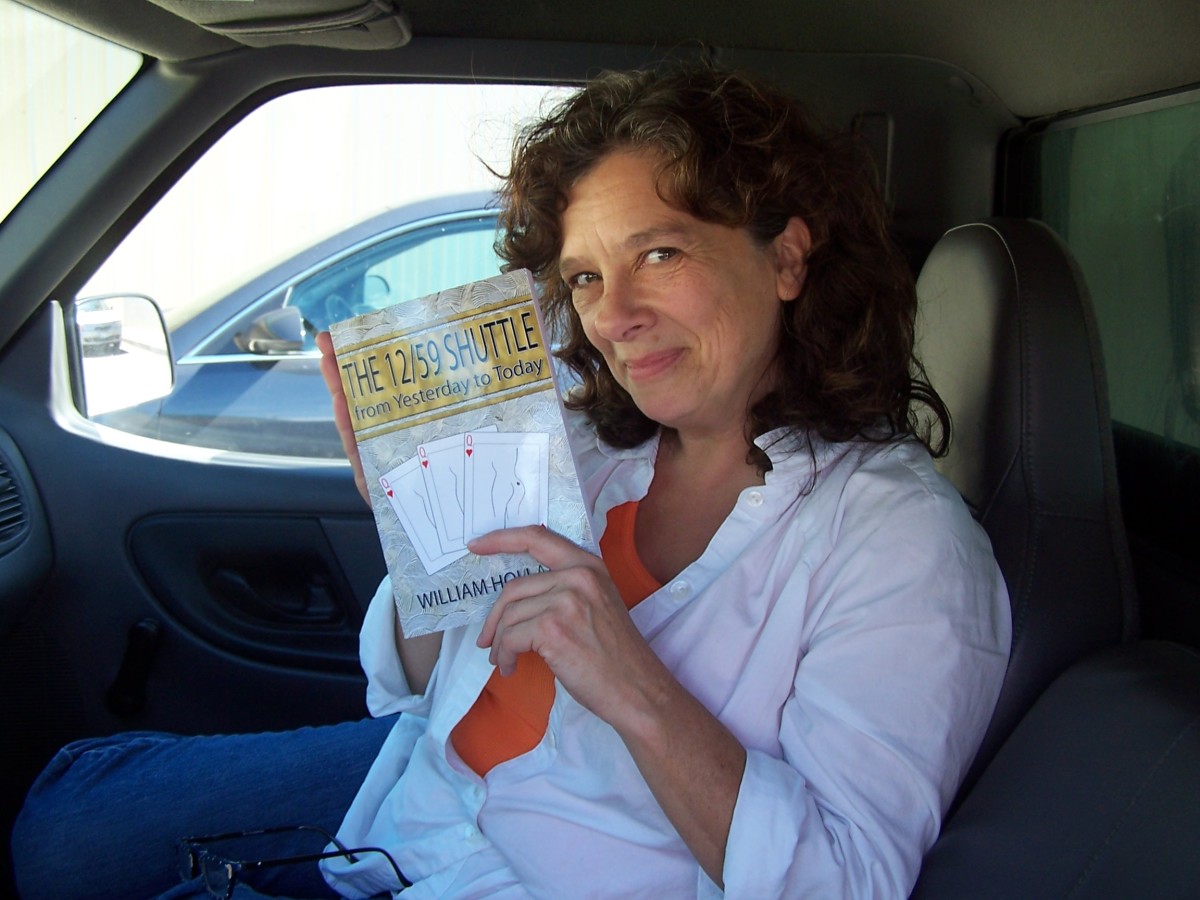Yes, yes I can write a novel! Pt. 14

The Just War, Ch. 14
Note: This is the fourteenth chapter in a novel that I'm writing as part of the NaNoWriMo challenge to write a 50,000 word novel between November 1-30. The rules are: Just write it! Don't edit, don't obsess, don't chart out notes. Don't worry about spelling, syntax, grammar or continuity. You can go back and fix those things later, but the most important thing to writing the novel is to get it written! It works out to 1,667 words per day. If you do more, great! If you do less, don't worry! Just keep plugging! And hopefully my first draft, with all spelling errors and continuity holes intact, will inspire you that you can do it too!
Detective Phillip Thomas Smithers was actually a third generation American. His grandfather had emigrated from Yorkshire, and Phil could still cop a pretty good Yorkie accent when he needed to. His Grandpa Andy would delight in spending hours just talking about anything with Little Phil, just hearing someone do the accent. Dropping the ‘h’, pronouncing ‘the’ as ‘tuh’, the peculiar way sentences sometimes seemed to crescendo on the next to last word then drop down to a normal tone for the last word. Phil had been fascinated with these things as a kid. It had been how he’d first started analyzing people, started watching things about them to try to plumb their depths. The way people talked was important, what they chose to say, the way their voices could reflect what they were really thinking even when their words didn’t.
Phil had studied languages in college. He’d taken Spanish in high school simply because he needed to take one for college entrance and he’d read that by a certain year there would be more Americans of Hispanic heritage than European. He’d done well at it, but had been surprised that when he went into Mexican restaurants and spoke his book perfect Spanish that sometimes the waiters just looked at him.
That had been the next step in his evolution as a budding policeman. The idea that sometimes you just didn’t fit in, no matter what preparation you did. How did people react to that? he had wondered. He wondered if killers ever felt like that. So often in movies killers were shown to either be cold-blooded machines or people who didn’t fit in and couldn’t handle it. He’d seen “Taxi Driver” as a teenager and marveled at how Travis Bickle seemed okay after all the blood of shooting so many men. And he concluded long before reading analyses of the movie that next time, Bickle would not be a hero.
He’d always enjoyed observing and analyzing. He enjoyed the act itself, he enjoyed knowing things, but he didn’t always like what he knew. Something else he’d gotten from his Grandpa Andy was the sense that there was a way the world ought to be and when it didn’t behave the way it should, something should be done about it. Grandpa Andy had come from a long line of clock makers. He was thorough, meticulous and detail oriented. Jeremy, Phil’s father and Andy’s son, had skipped those parts, taking more after Grandma Florie. Jeremy was more emotional, less detail oriented but he had an astonishing capacity for grasping the big picture even when he didn’t have all the details. Jeremy was more intuitive than Andy, and Phil was more like Andy.
Phil had two brothers and a sister and they had all grown up in a working class neighborhood. All very rough and tumble, they got into fights often. Phil was the baby of the family, but as he’d gotten older he had proven more than able to handle himself.
When she was sixteen his older sister Theresa had become pregnant by a boy she had met at a party. He had gotten her drunk and taken advantage of her. Their older brothers Jack and Billy had gotten furious and gone to find the kid, to beat him to death. Struck by the Biblical aspects of it all, Phil had gone and stopped them, explaining that there were legal ways of making the kid pay. It had not been nearly as easy as he had wanted to think, but he persevered and the Smithers family was finally able to make the boy pay for his own son. Two years later the father disappeared and they had never been able to find him again. Phil was thirteen.
Standing outside the Lawless home, smoking a cigarette (yet another gift from his grandfather,) Phil thought about everything. He thought about the first call from kidnapper. The disguising technology effectively kept them from being able to tell whether this person was even male or female, but his money was on a male. If a woman had been the abductor, and if there had been a phone call, there would have been concern expressed that care was being taken. There would have probably been some phrase about the parents shouldn’t worry because the captor was, in fact, taking very good care of the victim. And a special needs victim, one who was so obvious, would probably not be an attractive target. A woman would want someone she could take care of but not someone she would feel overwhelmed by right from the starting gate. No, it was a man.
The next question was what kind of man? Although money had been demanded, and a pretty fair amount, Phil was unsure that money was the primary motivation for this perp. The whole phrase about “unmarked, sequential and small” was boilerplate, you heard it in every movie and television show where there was a kidnapping. Some real planning would have been needed for this, this couldn’t be a spur of the moment thing.
Something else was nagging at him, a phrase the kidnapper had used on the phone. “Saw you at the library.” The way he had said it, it didn’t sit right. He got out his own cell phone and called his superior, Captain Swanson. “I think we need to have people talking to supervisors of places they Lawless family goes,” he said.
“What do you mean?” Captain Swanson asked.
“I wonder if the kidnapper maybe works at someplace where they frequent, had been watching them for a while. They would have been known, people probably asked about them.”
“Okay, I’ll get a couple of guys on it. Ask them where all they went, we need to know about this.”
“Yes sir,” Smithers said, then hung up. Taking the last puff of his smoke, he dropped the butt and ground it out with his heel. Folding his umbrella, he was amazed at how addicted he had allowed himself to become to nicotine. He wiped his feet on the mat and put his umbrella in a stand by the Lawless’ front door. Not for the first time, he mused on an Englishman helping an Irishman, and the Irishman asking for that help. But that was neither here nor there, this was America.
He had seen Barry’s girlfriend come in a while ago. Looking around, he saw Vic sitting at a computer in the living room and Tommy and the Silers sitting in front of the television. Plastino and Johnson were sitting in front of computers in the dining room. Jan was just going into the kitchen, saying something about coffee. Moving through the house quietly, trying to take everything in, he noticed that Vic was emailing a man named Paddy. There were family pictures all over the place, on walls and on desks and tables and on the mantle of the fireplace. Most were of the kids, some were of the mom. Not many pictures of the dad could be seen.
The furniture was tasteful, he assumed it had been picked out by the mother. Vic struck him as the kind of guy who went along with most of whatever his wife wanted in order to keep peace.
His eye was drawn to the webcam attached to the monitor. He looked at it, it was pretty good size, white, round. The monitor was black. How had he missed it before. From behind Vic he said, “I see you’ve got a camera.”
Looking involuntarily up at the little webcam which was attached to the monitor, Mr. Lawless answered, “Yeah, Jan likes to Skype her sister in Michigan.”
Walking in, coffee cup in hand, Mrs.Lawless asked, “What are you two talking about?”
Turning in his chair toward his wife, Mr. Lawless answered, “Detective Smithers was just asking about the webcam.”
“Really? Why? Do you think that’s important?”
Leaning over to get a little better look at the webcam, Detective Smithers replied, “Just curious, ma’am.” He was fingering his pack of cigarettes in his pants pocket. “Have you had it a long time?”
“No, just a couple of years,” Mrs. Lawless answered. She wore a puzzled expression and again asked, “Is this important?” She was holding the coffee cup in both hands, as if trying to warm them up. She was radiating so many emotions that she practically glowed, Smithers thought. But at the same time she had a wall up around her. She almost seemed ready to work against the investigation.
“I just have insatiable curiosity, Mrs. Lawless,” came Smithers’ answer. “That’s probably why I became a detective.” He smiled at her, his best reassuring smile.
She arched an eyebrow, but otherwise let it slide. She did not return the smile, but instead took one hand away from her coffee and pulled her sweater more tightly around her. She did not in any way indicate that she appreciated Detective Smithers' humor. “Vic, did you hear something earlier?”
“Like what, Honey?”
“I don’t know, like somebody crying.” She looked away from Mr. Lawless but her eyes were dry. Mr. Lawless started to rise from his chair, arms moving toward Mrs. Lawless but she moved away from him, going over to watch the television. She sat in a chair, farther away from Mr. Bowen than from Mr. and Mrs. Siler but not particularly close to either of them.
It was a little after five thirty p.m. The local news was coming on some stations. The kidnapping was the lead story. They checked several channels, and they all were telling just how little was known about this case. Mrs. Lawless, Mr. Bowen and Mr. and Mrs. Siler were sitting in front of the set, a giant flat screen monitor mounted on one wall. The Channel 13 Nightcast was starting, the male and female anchors gazing seriously, even gravely, out at the audience. The Lawless’ three friends all looked over at Mrs. Lawless.
“It doesn’t matter, at least now right now,” she said, walking over to the couch and sitting, watching the television.
Mr. Lawless finished up emails. He’d received missives from almost every living member of both their families, and was thinking about how to reply. For the moment, he’d simply sent out a carefully worded email, one suggested by Detective Smithers. It gave a quick overview of the situation, nothing they couldn’t find out by watching the news. He thanked everyone for their concern, asked everyone to pray (even though several members of his family had never prayed in their lives,) and made some small talk. He wished he could be straighter with everybody, but he had to agree that it would be counterproductive to “accidentally” find some sensitive information being blatted out on the evening news. So Vic held his tongue and didn’t get into some weird kind of interest in what’s going on.
As Detective Smithers observed, Mr. Lawless sat, looking at the phone the kidnapper had left behind. A small, cheap phone, it was probably bought at a gas station somewhere between where they lived and this house. Basic black, no weird colors or anything flashy, it was little to no help in the effort to find anything helpful about the kidnapper. He picked it up, turning it over in his hand. The rain had been settling down outside but it had begun picking up again. The sky was almost black now, it was getting on toward night time in the mid-November time.
Thanksgiving would be coming soon. And Black Friday, a day when Phil Smithers always got up extra early to try to hit the best or most interesting sales. He always had all his Christmas shopping done by the Saturday after Thanksgiving.
Barry Lawless followed his girlfriend down the stairs and as he did so, the cell phone rang. Mrs. Lawless started cursing.
copyright (C) 2012 christopher w neal all rights reserved








